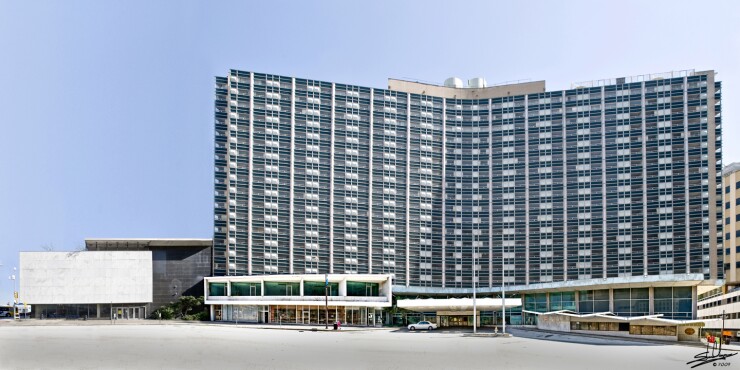WASHINGTON – The Securities and Exchange Commission is examining the same bonds that helped finance redevelopment of the old Statler Hilton Hotel and Dallas Central Library that the Internal Revenue Service says are taxable.
The IRS preliminarily concluded last month that the $26.5 million of zero coupon bonds issued by the Public Finance Authority in Wisconsin in 2016 for the redevelopment project in Dallas should be taxable rather than tax-exempt.

The authority and Orrick, Herrington & Sutcliffe, which was bond counsel and counsel to the authority for the bonds, disagree with the IRS and are challenging its preliminary findings, according event notices filed with the Municipal Securities Rulemaking Board’s EMMA system and sources.
Scott Carper, a managing director of the PFA said on Wednesday that the SEC sent a letter to the PFA in March seeking all documentation related to the project, confirming a story in the Dallas Morning News. Carper said the authority has not heard anything further from the SEC.
Robin Bentley, Dallas’ interim director for economic development, said city officials have not been contacted by the SEC.
“We have received nothing about the SEC investigation,” she said, “I’m only aware of it because of the news coverage. As far as I know no one at the city has been contracted about any investigation.”
A spokeswoman for developer Mehrdad Moayedi also could not be reached for comment.
The SEC has, in the past, charged transaction participants with securities fraud for misleading investors about the tax-exempt status of their bonds.
The IRS began auditing the bonds in January, less than five months after they were issued. Local newspapers in Dallas had published articles quoting sources raising questions about the unusually complex financing and the incentives being provided to the developer – Commerce Statler Development, LLC, a company created by Moayedi.
Moayedi’s plan was to develop the former Statler Hilton Hotel, which has been vacant since 2001 as well as the old Dallas Central Library on Main Street into a luxury residential tower with restaurants, offices and a move theatre, according to the website of his development company Centurion American and statements he made back in 2014. Construction of the project was slated to start in 2015 and to be completed in 2017.
The transaction was complex. The Dallas city council approved $45.5 million in tax increment financing for the project in 2014. The $26.5 million of tax increment finance grant revenue bonds were issued August 2016 by the authority in Wisconsin “to provide funds to finance the cost of the acquisition of a portion of the Economic Development Tax Increment Financing Grant” made by Dallas, according to the official statement for the offering.
The OS said the developer planned to transfer the TIF grant funds to Ctmgt, LLC, another company owned by Moayedi “on behalf of the developer to be treated as a non-shareholder contribution to capital.”
A detailed description of the funding plan in the OS says that initial funding for the project was to be comprised of loans and contributions. The OS said the bonds were to be paid in part by the Economic Development Tax Increment Financing Grant from the city and other returns on investments.
Moayedi also owns Centurion American and various subsidiaries that are involved in roughly 70 master planned residential community projects in Texas valued at about $2 billion (at build out). Roughly 40% of those projects have been developed using funding by various entities associated with United Development Funding, a sponsor of real estate investment trusts based in Grapevine, Texas.
UDF’s headquarters was raided by the FBI in February 2016 following allegations by Kyle Bass, who runs Dallas-based hedge fund Hayman Capital Management and bet against one of UDF’s fund’s shares, that that UDF involved in a Ponzi scheme. Bass alleged that UDF was using new investor money to repay earlier investors. UDF says a law firm it hired to investigate found no evidence of fraud.
The official statement for the Statler Hilton bonds said UDF was not associated with the project or bonds.





